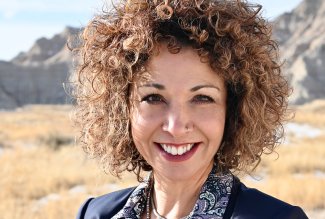Tawney Brunsch received her bachelor’s degree in Economics with a Commercial Economics specialization in 1988 from South Dakota State University.

Ms. Brunsch is a member of the Oglala Sioux Tribe and is the Executive Director of Lakota Funds, a Native community development financial institution (CDFI) established in 1986 as the first Native American CDFI, serving the Pine Ridge Reservation in South Dakota. At Lakota Funds, she successfully led the organization’s achievement of key organizational benchmarks, including the chartering of the Lakota Federal Credit Union, expanding Lakota Funds’ lending area to the Rosebud Reservation, efforts to become an FSA-Guaranteed ag lender, and launching the Child Development Account (CDA) program, one of the first such programs in Indian Country. Nationally known for her community development efforts, she serves on a number of boards and advisory committees including the Federal Home Loan Bank of Des Moines Advisory Council and the Native CDFI Network’s Policy Committee. Prior to joining Lakota Funds in 2008, Ms. Brunsch worked with the Black Hills Federal Credit Union for eight years as a Branch Manager and Lead Lender.
Ms. Brunsch remains committed to economic development on the Pine Ridge Reservation in her roles as Board Chairman for the Lakota Federal Credit Union, and the Board Treasurer of Mazaska Owecaso Otipi Financial, a fellow CDFI focused on homeownership lending. She has been a leader of the South Dakota Native Homeownership Coalition since its creation in 2013, and currently serves on the Executive Committee, Policy Committee, and Veteran’s Committee and chairs the Physical Issues Committee. Ms. Brunsch is a strong voice and advocate in Indian Country. She was the recipient of the 2018 Visionary Leader Award, recognizing her long‐term contribution to the Native CDFI industry and local financing and asset-building efforts. In October 2019, the Federal Reserve Board announced Brunsch as one of the four new members of its Community Advisory Council (CAC) who will serve three-year terms beginning in 2020. Council members provide information, advice, and recommendations to the Board on relevant policy matters and emerging issues of interest.

